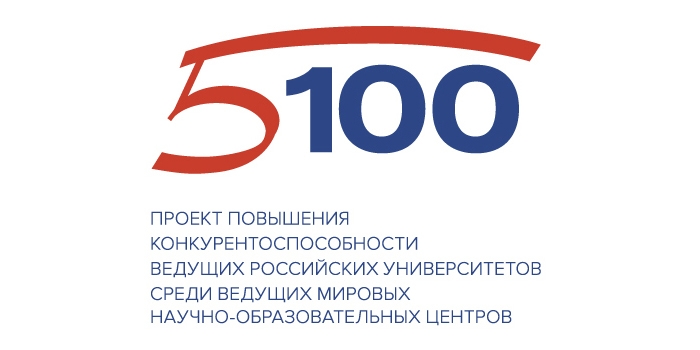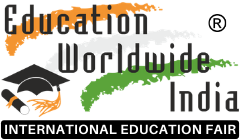More and more Russian-born scientists who have made a successful career abroad are choosing to pursue research in their native country. What made them leave in the first place and why are they coming back now?

Russia had its first experience of a massive brain drain in the 1990s following the breakup of the Soviet Union that unleashed a deep political, social and economic crisis. The flight of human capital continued strong for years before slowing down in the 2010s when the government started pouring money into science and higher education as well as into a range of high-tech industries.
From the first perestroika years through the early 2000s Russia was swept by several waves of emigration. Many of those who left the country to settle permanently abroad had high academic degrees. Most Russian scientists went to the US, others ended up in Switzerland, France, Germany, Canada or elsewhere.
While the brain drain has not yet stopped, it has now decelerated significantly due to the government’s increased support for science and higher education.
The Federal Program for Scientific and Technological Development provides more than R2,200 bln in 2019-2021 according to the Federal Law “On the Federal Budget for 2019 and planning period for 2020 and 2021”.
Experts point to a rise in federal budget appropriations for civilian R&D, with the Higher School of Economics (HSE) estimating that they increased by as much as 230% between 2000 and 2017. In the latter year, applied research accounted for 69% of total civilian R&D spending, the remainder going to basic research.
Rising investment in basic and applied research is proving an incentive for Russian-born scientists to return. One of those who have made their way back home is Pavel Volchkov, formerly of Harvard University and currently head of the Genome Engineering Lab at the Moscow Institute of Physics and Technology (MIPT). Although himself a repatriate, he sees no harm in young researchers, even the most promising, going abroad.
In fact, he regards it as natural and commendable that scientists should want to do an internship overseas in order to try their hand at something new and pick up valuable contacts. This is a universal trend, not something peculiar to Russia. Researchers in France and other European countries also go to study abroad only to return home with their newly acquired expertise. Pavel Volchkov is convinced that this is a good thing because it stimulates both cultural and technological exchange, which keeps the scientific community out of the doldrums.
However, if talent is to be enticed back to Russia, the country’s higher education system must be transformed. Universities should engage in cutting-edge research and strengthen their collaboration with industry.
Speaking to the Russian Internet medium Vmeste, Isak Froumin, who heads the HSE Institute of Education, says that even universities, which are inherently conservative institutions, have got to change. With competition heating up, the government revising its science policy, a national matriculation examination (unified state exam) introduced and the differentiation between the country’s regions growing more pronounced, Russia’s group of ‘classical’ universities has become increasingly stratified. Some of them have successfully completed a difficult transformation by promoting research identity, cultivating the brightest student talent and engaging industry practitioners.
The government has created incentives for Russia’s top universities to revive schools of sciences, put together multidisciplinary research teams and build innovation clusters. These institutions have managed to attract abler students, halt the ageing of their faculty staff and improve research productivity. The next step is for them to evolve into a new, sustainable type of comprehensive, multidiscipline, multifunction research university which would not only have a role to play in regional development but be competitive in the international R&D marketplace.
Such an evolution has been given an impetus by Project 5-100 which has been assisting 21 universities to improve their global competitive position and, more broadly, to embark on accelerated modernization, faster-than-average development and transformation.
Those classical universities that participate in the project have, to all intents and purposes, adopted a global classical university model and are setting the standards for the country’s other classical universities that have been lagging behind to various extents, Isak Froumin says. He believes that the best-performing universities will focus on conducting cutting-edge research and integrating it into education, with the least successful ones assuming the more mundane role of teaching-only post-secondary institutions that provide mass higher education. To unlock their full potential, classical universities must re-shape themselves as large, multi-purpose, multifunction universities commonly referred to as flagship universities in current literature.
However, no institution can achieve flagship status unless its laboratories manage to recruit internationally experienced researchers. Russian universities have been seeking to attract such talent by offering postdoctoral fellowships. As a result, dozens of scientists that have made their mark at the world’s top-tier universities have been coming to Russia. Postdoctoral fellowships are awarded by several Project 5-100 participants, including Far Eastern Federal University (FEFU), ITMO University, Kazan Federal University (KFU), MIPT, Siberian Federal University (SibFU), South Ural State University (SUSU) and Ural Federal University (UrFU).
Sergey Novikov from the MIPT Nanooptics and Plasmonics Laboratory says that one reason behind his decision to return was that Russia now offers better opportunities than Europe, where it has become increasingly difficult to obtain a permanent research position, win projects and develop one’s team. In Russia, by contrast, scientists are free to pursue projects that have an interest for them. Also, they can apply to, and rely on getting assistance from, a variety of funds that promote research.
The prospect of implementing grant-funded basic and commercial research projects is not the only inducement for scientists who have carved out a successful career in the West to go back to Russia. What enhances the appeal of Russia’s leading universities is their state-of-the-art instrumentation and world-class laboratories and experimental facilities set up with government support.
So far as research facilities go, Sergey Novikov sees no great difference between Russia and Denmark, where he used to work. The facilities at the MIPT Department of General and Applied Physics which houses his Russian laboratory are very much like those to which he was accustomed abroad. Indeed, he adds, it is not every European research team that has such a plethora of equipment at its disposal. He further says that he has kept in touch with his overseas contacts and is gradually bringing them over to Russia. As employees at an international laboratory, Sergey Novikov and his fellow staff members pursue active collaboration with young professor friends and colleagues of theirs from abroad. This enables them to engage in student exchanges and joint research projects with counterpart institutions from Denmark, Spain, Mexico, Israel and other countries.
That Russian universities are well-equipped technologically is confirmed by Evgeny Kolychev who relocated from Oxford several years ago to join the team at the MIPT Nanobiotechnology Lab.
Evgeny Kolychev says that on his return to Russia he was favorably impressed with the state of scientific research and the lab facilities as well as the education level and expertise of the staff. There are also, he says, important attitudinal differences from Germany and Britain. In his experience, most German students merely want to get an education so that they could land a job – but not a job in science. In the UK, he came across many researchers who had no motivation to do anything really exciting in their field. They were just making a career in science, which meant churning out research papers in the hope of eventually securing an independent position. Within this paradigm, one would never dream of spending twelve months over an article, however insightful, as that might mean ending up with too few publications to make one eligible for a tenured job.
****
Project 5-100: Starting from 2013, Russia has been implementing Project 5-100, – a state support program for Russian universities. Its goal is to raise the standing of Russian higher education and have at least five member universities in the top-100 of three respected world rankings. Project 5-100 is enabling 21 Russian universities to move forward in terms of effectively strengthening their education and research, promoting innovations and R&D, facilitating international cooperation, streamlining administration, balancing the authority of the management and academics, nurturing a proactive academic environment, increasing internationalization, providing sufficient incentives for attracting the top professors from around the world and also for the existing faculty’s professional growth.





